- Home
- Blake Banner
Blood in Babylon Page 7
Blood in Babylon Read online
Page 7
“Hardened criminal…”
My phone rang and as I answered it, I said to Dehan, “Arrange a visit to upstate for tomorrow afternoon or the following morning.” To the phone, I said, “Yeah, Stone.”
“Detective John Stone of the New York Police Department, forty-third precinct?”
“Yeah, that one.”
“I am Maximilian Chester’s personal secretary. I am calling to inform you that Mr. Chester will receive you at his home in Manhattan at ten thirty precisely tomorrow morning. He will be free for half an hour, so he would be grateful if you could confine your questions to that time frame. Sixty-nine, Leonard Street, the penthouse.”
“We’ll be there.” I hung up. Dehan was still on the phone. When she hung up, I said, “OK, we are meeting Maximilian Chester tomorrow at his Manhattan penthouse at ten thirty precisely. We are granted exactly half an hour in The Presence.”
“Yeah, I gathered. Ernesto is in hospital with a broken jaw. We meet Julio tomorrow evening. It’s a six hour drive, so I figured if we leave around eleven or twelve, we’ll be there about six. I said we’d confirm the precise time when we were en route.”
“Good.” I bounced a pencil a few times on its eraser. “The one thing that stands out to me, Dehan, is that there is no indication that any of Ned’s friends suddenly came into money at the same time he did. In fact, within a year of Al’s murder, the gang seemed to break up. The Chavez brothers joined the Chupacabras, and the others just kind of went their separate ways. None of them showed evidence of having come into a quarter of a million bucks overnight.”
She pursed her lips and her eyes became abstracted. She reached behind her head and tied her hair in a knot. “So his broken hand has put him in a real bad mood. This kid is not, by nature, a killer. But he doesn’t like Al.”
“Yeah, I got that impression,” I said dryly.
“Shut up. He doesn’t like him and he never has—but now Al has broken his hand, and that has made him real mad. So when he comes out of ER, he tells his pals he’s going home to sleep. He told us he was a little high from the painkillers, but he is also hyped up with rage and pain. So he takes a 9mm and his mom’s kitchen knife…”
I went to speak, but she raised a hand. “I know what you’re going to say. He had a mean old knife in his pocket already. But I told you, Mr. Stone, that he is high on a dangerous mixture of painkillers, pain and adrenaline—and maybe a little weed—and he wants a real knife. Something like his mom’s big, bad kitchen knife, with a six inch blade. He takes that and his 9mm down to Al’s and gets there about twenty-five past ten. He breaks in while Al is watching his thirty-first rerun of Murder She Wrote. Al hears him and panics. Al’s panic makes Ned panic and he fires his gun. The pain from his broken fingers—or the fact that he’s using his left hand, take your pick—make the shots go wide. Al knocks the gun from his hand and Ned plunges the kitchen knife, two handed, into his heart. He then ransacks the place, searching for his money, and finds it.”
I sighed, screwed up a small ball of paper and threw it at her. She caught it left-handed and threw it back. I said, “He then uses his extensive knowledge of finance, trust funds and equity management to set himself up as the beneficiary of an anonymous benefactor. You can’t believe that, Dehan.”
“I don’t. I think it’s exactly what I said to him back at the garage. He found himself sitting on a rucksack full of money, maybe half a million bucks, and took it to a high street shyster, told him, ‘OK, I got half a million bucks, what the hell can I do with it?’ And the shyster came up with the idea of the trust fund.” She gestured at me with both hands. “Who is going to believe that a petty crook like Ned would come up with an idea like that? Nobody. It’s perfect. Besides…”
“What?”
“We got nothing else. You know as well as I do that neither the brothers nor the sister did it. They wouldn’t know where to begin.”
“How do you know that? It’s too soon to reach that kind of conclusion. And anyway, they might know a man who does.”
“So now we have a hit man to add into the equation?” She sighed and shook her head. “Jonathan, Jonathan, how many times do I have to tell you? Entia non sunt multiplicanda, praeter necesitatem!”
Mo looked over his shoulder at her. Then he looked at me resentfully. “This is your fault, Stone. Before, she was just a pain in the ass with an attitude. Now she’s all that, plus she talks Latin. What kind of freaks are you?”
Dehan snarled, “Get back in your hole, Mo.” To me, she said, “The simple explanation is there, Stone. You’re looking for a complicated explanation when you don’t need one.”
“I know what Occam’s Razor states, Dehan.”
“It’s called Occam’s Razor.”
“I know. I taught it to you…”
“It means don’t complicate matters, Stone. The simplest answer is probably the right one.”
“Did you book us somewhere to stay?”
“Same as before, Kilburn manor, it’s a restored old manor house, furnished with genuine antiques. Then I thought we could dine at the Riverside Steak House. It was very good last time, wasn’t it, darling?”
She said it all with a very straight face while I tried not to laugh. Mo was staring at the ceiling, shaking his head. “Please, God, make me blind. Make me deaf. Better still, make them stay in Malone! Please!”
I stood and pulled on my jacket. “Come on, darling,” I said to her, raising an eyebrow. “I don’t think I like the atmosphere in this establishment. I find it distinctly grossier!”
Mo snarled over his shoulder, “Aaah, take a hike, willya!”
Dehan pulled on her jacket. “We’ll be far too busy for that. We’ll be working, you know. Not on holiday!” With that, she took my arm. “Shall we go, darling?”
“The Jaguar awaits, darling.”
The last thing I heard before we made our way out to the car was Mo asking sweet Jesus to give him strength.
EIGHT
Max had his penthouse at the top of a handsome 1930s building at the corner of Leonard Street and Church Street. I parked at a meter out front and we stepped into a lobby that looked more like a luxury hotel than an apartment block. He had his own elevator and we had to buzz at an entry phone so his personal secretary could let us board it.
While we were riding up to the eleventh floor, Dehan gave me her expressionless look. “We had a Yale key and a deadbolt. Back door was a chub and a deadbolt. We had four floors and we had to climb the stairs.”
I shrugged. “Your father should have been a doctor, like his mother told him.”
She nodded several times, still with no expression. “Witty. Remind me why I married you.”
“Because I’m witty.”
“Pretty sure it wasn’t that.”
The doors hissed open and we stepped into a spacious lobby about the size of my open plan living room and kitchen. There was wall to wall deep burgundy carpeting and nasty Louis XV sofas and chairs in duck egg blue and gilt, with legs that seemed to have rickets. There was also a walnut escritoire inlaid with ivory, and a couple of coffee tables that might have been Chinese. All in all, the furnishings were probably worth as much as a small family home.
An invisible door opened and a bunny girl in a business suit stepped through, cocked her hip and smiled like she was sitting on the bonnet of a Mustang fastback.
“Dr. Chester will see you now. Please follow me.”
We followed her through the door into a large, comfortable drawing room with gleaming parquet floors and lots of suede furniture set around a bronze fire pit in the middle of the floor. The wall opposite was plate glass and offered a view of the Hudson across the rooftops of the Financial District. It was a good view.
Our bunny girl swung her hips with reckless disregard for the Ming vases, Picasso statuettes and Phoenician pots that stood dotted here and there along our way, and led us through the drawing room and down a passage to a somber, mahogany door. Here she tapped lightly and pus
hed it open.
“Your ten-thirty is here, Dr. Chester.” Then she stood back, holding the door, cocked her hip and gave Dehan a special ‘I hate you because you’re beautiful’ smile. “Please come in.”
The study was everything that Maximilian Chester was not, but wanted to be. For a start, it was big, while he, standing beside his desk and approaching us with extended hand, was not. He was probably five-two in his shoes.
The study reeked of old world elegance: the walls were paneled in oak, there was a nineteenth century sideboard with a silver tray of spirits in hand-cut Waterford crystal decanters. There were oak bookcases that, here and there, were scuffed and scratched from a couple of hundred years of good use. Queen Anne occasional tables sat discreetly, but elegantly, beside ancient chesterfields around a marble fireplace. His desk, also oak, looked to my untrained eye as though it might be late Jacobean. There was a smell of furniture wax and pipe smoke that lingered reassuringly in the air.
He, on the other hand, was the only thing in the room that was out of place and jarring. His suit, in dark blue silk, was Italian and double-breasted, cut to hang like a roman toga. His shoes, slip-ons with a tassel, were also Italian and, like the suit, proclaimed their high price loudly and shinily. He, unlike his office and his pedigree, was vulgar.
He spoke as he shook our hands. “Dr. Maximilian Chester. Take a seat. Can I offer you a drink?”
We showed him our badges and I shook my head. “No, thank you, Dr. Chester. I’m Detective Stone and this is Detective Dehan, and we are on duty.”
“I know who you are. So does the mayor. He speaks highly of you. He says you have a reputation for causing problems for people in high places.” We all sat in the ancient chesterfields and he leaned forward with his elbows on his knees. “Are you going to cause problems for me?”
I was about to answer, but Dehan spoke first. “We don’t cause problems for people in high places, Dr. Chester. We cause problems for people who think they can get away with murder. Some of those people live in low buildings, others live in penthouses. But we don’t go after them just because they are in high places. We go after them because they are criminals.”
He regarded her without expression. “Do you think I am a criminal?”
She smiled sweetly. “That’s what we are here to find out.”
He turned to face me. “Are you as blunt as she is?”
“Yes.”
“Good.” He leaned back in his chair. “Then we can cut to the chase and speak plainly. You suspect that one of us was responsible for having Aloysius killed.”
I was about to tell him we didn’t suspect it, but it was a possibility we had to explore. Instead, Dehan said, “Did you?”
“No.”
I crossed one leg over the other and studied his face. It was still completely expressionless. I said, “Great, well, now we’ve sorted that out, maybe you could answer some questions for us.”
“Glad to.”
“The house where Al lived…”
“His name was Aloysius. As far as I know, he was not working for the Italian Mafia.”
“Aloysius, the house where he lived…”
“I believe it was in the Bronx, close to the practice of that Harvard quack friend of his.”
“1932 Ellis Avenue.”
“What of it?”
“When Aloysius died, that house passed to you…”
“I had no idea. I own well in excess of two hundred properties worldwide, Detective Stone.”
“Why would he leave it to you?”
“He didn’t. He had no capacity to make a will. When he died, there was the question of his shares in the family company. Our lawyers looked into it immediately because we didn’t want some outsider muscling in on the family business. It was anybody’s guess whom he might have left them to. Their instructions were to contest any will he might have made on the grounds, as I have said, that he was not fit to know what he wanted, or to make a rational decision. As it was, he had not left a will, so his possessions were shared out among his siblings. I didn’t even know I owned it.”
“Apparently it has been sitting vacant since he died.”
“Oh.”
“May we go and inspect it?”
He shrugged. “If you think it will do any good after twelve years, be my guests.” He rose and went to his desk, flipped a switch and spoke. “Penny, who has the keys to 1932 Ellis Avenue, in the Bronx?”
“The Bronx?”
“Yes, Penny, the Bronx.”
“I guess Benny has them…”
“Get them. Have them sent to the 43rd Police Precinct in the Bronx, for the attention of Detectives Stone and Dehan. Have it done now.”
“Yes, Dr. Chester.”
He flipped the switch back and looked at his watch. “Was there anything else?”
I smiled. “Yes, Dr. Chester. I believe relations between you and your older brother were not good.”
He returned to his chair. “Good? How could they be good? He set about deliberately humiliating and disgracing his family. Medicine, the Hippocratic oath, service to the public through medicine, all of these things have been sacred to our family for generations. He made a mockery of it all.
“Aloysius wrote an article in his student paper reviling the traditions of our family, accusing us of rampant hypocrisy and exploiting a corrupt, bankrupt system to line our pockets with gold. And that was just the beginning. Then he started smoking pot, taking acid and other hallucinogens, publicly displaying himself in scandalous orgies… It brought shame on all of us. We all vowed never to speak to him again and we disowned him.”
I nodded like I understood. “It must have been very worrying that he owned twenty-five percent of the family company.”
“Worrying?” He suppressed a bitter laugh. “Oh, yes, it was worrying. Especially as he was driving himself steadily out of his own mind. He went off to Mexico, with some Mexican girl. They lived in the desert, fornicating in some shack, drinking tequila and taking peyote and LSD. Who knew what the hell he was capable of doing in that state? He once told me he planned to give his twenty-five percent share of the company to a commune! People’s lives depend on the products our company makes! And this… this… narcissistic, self-indulgent parasite, was going to put that company into the hands of a bunch of drug addicts who thought it was cool to destroy the neural pathways in their brains by taking acid!” He nodded several times. “So yes, it was, as you say, worrying.”
I sighed. “I am not unsympathetic, Dr. Chester, I have little time for the drug culture myself, but I have to put it to you that what you and your siblings had was a very powerful motive for murder.”
His reaction surprised me. His eyebrows shot up and he barked a loud laugh. “Do you think we didn’t contemplate it? Do you think we didn’t discuss it? Of course we did! But, and this may seem trite to you, accustomed as you are to hardened criminals and murderers, but my view—and we all agreed—was that we had all taken the Hippocratic oath, and we could not knowingly, intentionally, kill another human being. So instead, we set the company lawyers to tying Aloysius up in so much legal tape that he would never be able to do the company any harm.
“Of course, by the time he got back from his protracted tour of South and Central America, he had driven himself to the brink of total psychosis, and that offered us a far simpler, and entirely lawful, solution. We had him diagnosed as a paranoid schizophrenic and put him in the care of Dr. Epstein.”
“Who had known him at Harvard.”
“Apparently.”
“Was that a deliberate choice? How did you come to choose him?”
He sighed heavily. His gaze was lost in the Persian rug on the floor. “That a member of our family should be brought to this…” He blinked and met my eye. “He was living rough in the Bronx, in the area of the Hugh J Grant Circle, sleeping on benches and in doorways. There is apparently some absurd church in that vicinity that ministers to the poor and the homeless. There he met a woman w
ho gave him some help. It emerged that she worked for a Harvard trained psychiatrist who worked in the area, and also had this desire to minister to the poor and the homeless. We approached him and, for an annual retainer, he took care of Aloysius. They also assisted in the purchase of his house. He and Aloysius were of similar age and both from Harvard Med School, so it is not that odd that they should have known each other.”
“Did you ever go and visit him at his home in the Bronx?”
“Certainly not.”
“How about your brother and sister?”
“You’ll have to ask them, but I very much doubt it.” He glanced at his watch again. “Have you many more questions? I am going to have to ask you to leave soon, I am afraid. I have a very busy day ahead of me.”
I considered him for a moment, then said, “Just one more question, Dr. Chester.”
He sighed heavily. “Yes?”
“Do you know much about the setting up of trust funds, equity, trusts, wills…”
He shrugged. “I am no expert, but it is not a complicated business. Though usually my attorneys would take care of anything like that. That’s what I pay them for. Why?”
I shook my head. “Nothing important. Thank you for your time. You have been very helpful.”
He made a face. “I doubt it. Penny will see you out.”
He returned to his desk, summoned the Bunny Girl and she led us, in the wake of her swinging hips, back to the exclusive elevator, which took us back down to the mortal plane.
We had packed a couple of bags the night before, so we were ready to go, and as we stepped out into the sunshine, I threw her the keys. “Your turn.”
She caught them, unlocked the driver’s door and we climbed into the Jag. Neither of us spoke as she pulled into Church Street and followed the Avenue of the Americas north toward the Holland Tunnel. She was silent, watching the road ahead, as we plunged beneath the vast, oppressive weight of the Hudson, following the stream of red lights toward Jersey. I also watched the road ahead, but my mind was elsewhere, thinking about Maximilian Chester and his family.

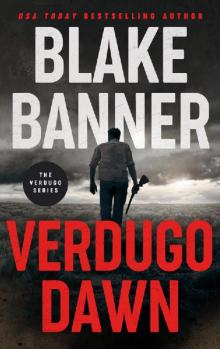 Verdugo Dawn
Verdugo Dawn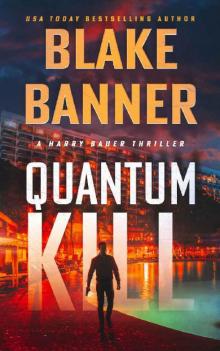 Quantum Kill (Cobra Book 4)
Quantum Kill (Cobra Book 4)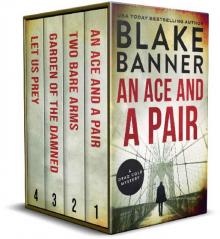 Dead Cold Mysteries Box Set #1: Books 1-4 (A Dead Cold Box Set)
Dead Cold Mysteries Box Set #1: Books 1-4 (A Dead Cold Box Set)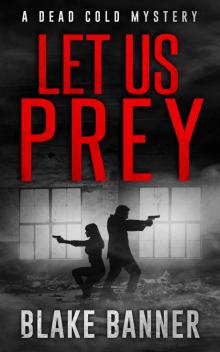 Let Us Prey
Let Us Prey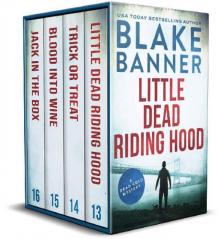 Dead Cold Mysteries Box Set #4: Books 13-16 (A Dead Cold Box Set)
Dead Cold Mysteries Box Set #4: Books 13-16 (A Dead Cold Box Set)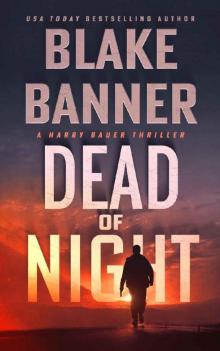 Dead of Night
Dead of Night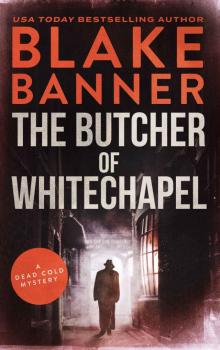 The Butcher of Whitechapel: Dead Cold Mystery 12
The Butcher of Whitechapel: Dead Cold Mystery 12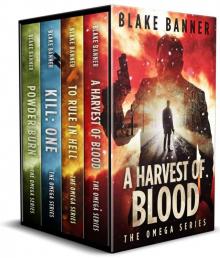 Omega Series Box Set 2
Omega Series Box Set 2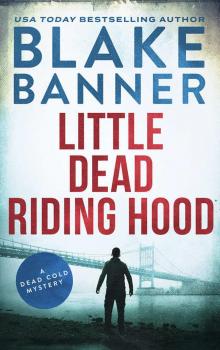 Little Dead Riding Hood: Dead Cold Mystery 13
Little Dead Riding Hood: Dead Cold Mystery 13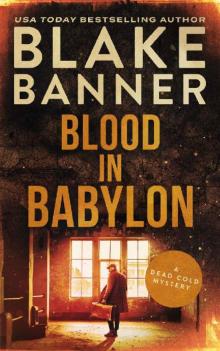 Blood in Babylon
Blood in Babylon Powder Burn
Powder Burn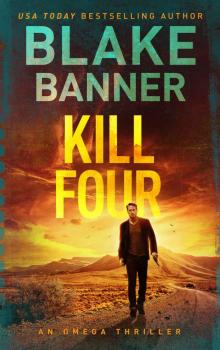 Kill Four
Kill Four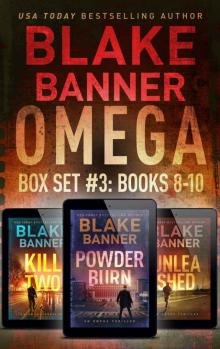 Omega Series Box Set 3
Omega Series Box Set 3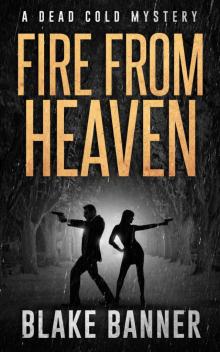 Fire From Heaven: Dead Cold Mystery 9
Fire From Heaven: Dead Cold Mystery 9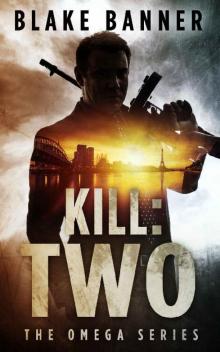 Kill - Two
Kill - Two Omega Series Box Set 1
Omega Series Box Set 1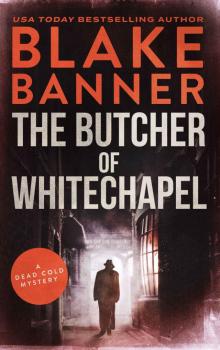 The Butcher of Whitechapel
The Butcher of Whitechapel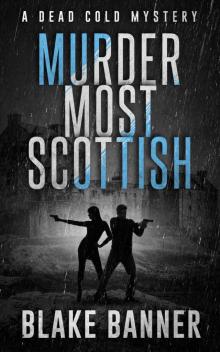 Murder Most Scottish
Murder Most Scottish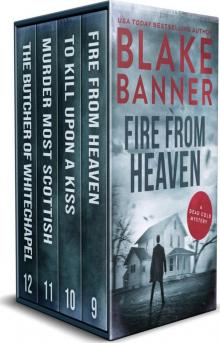 Dead Cold Mystery Box Set 3
Dead Cold Mystery Box Set 3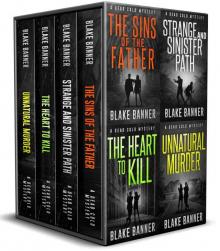 Dead Cold Mysteries Books 5-8
Dead Cold Mysteries Books 5-8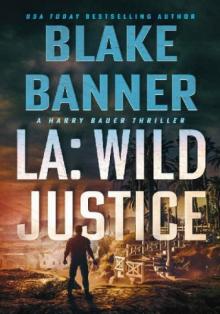 LA
LA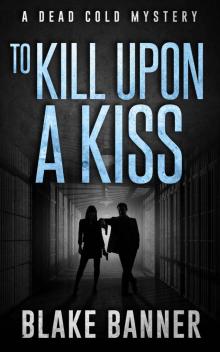 To Kill Upon A Kiss: Dead Cold Mystery 10
To Kill Upon A Kiss: Dead Cold Mystery 10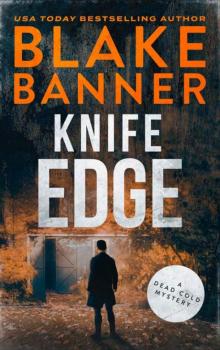 Knife Edge (A Dead Cold Mystery Book 27)
Knife Edge (A Dead Cold Mystery Book 27)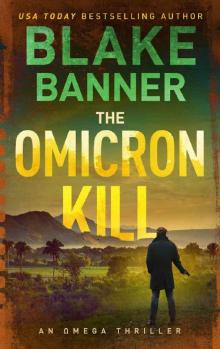 The Omicron Kill - An Omega Thriller (Omega Series Book 11)
The Omicron Kill - An Omega Thriller (Omega Series Book 11)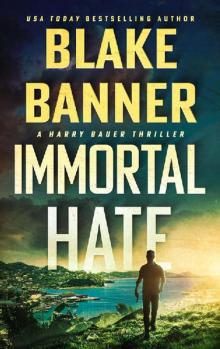 Immortal Hate (Harry Bauer Book 5)
Immortal Hate (Harry Bauer Book 5)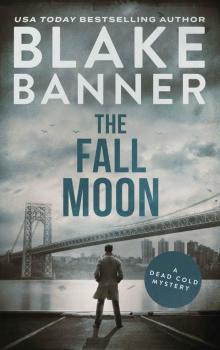 The Fall Moon
The Fall Moon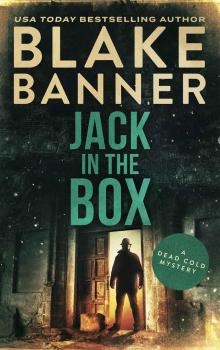 Jack in the Box
Jack in the Box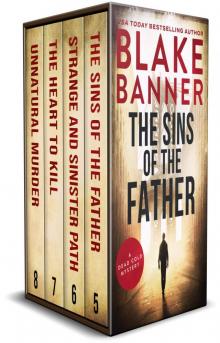 Dead Cold Mystery Box Set 2
Dead Cold Mystery Box Set 2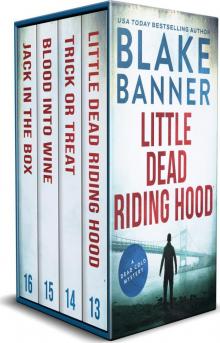 Dead Cold Mystery Box Set 4
Dead Cold Mystery Box Set 4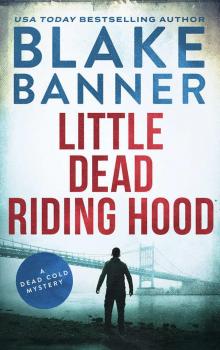 Little Dead Riding Hood
Little Dead Riding Hood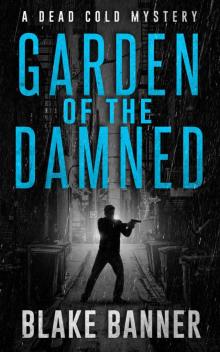 Gardened of the Damned
Gardened of the Damned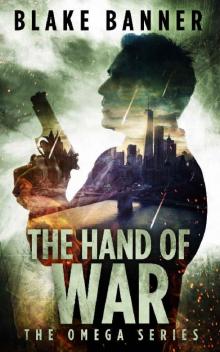 The Hand of War
The Hand of War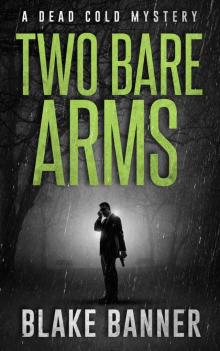 Two Bare Arms
Two Bare Arms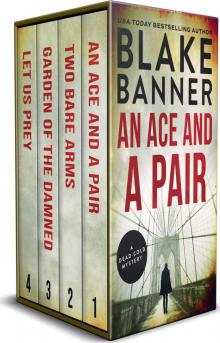 Dead Cold Mystery Box Set 1
Dead Cold Mystery Box Set 1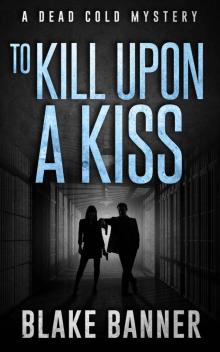 To Kill Upon A Kiss
To Kill Upon A Kiss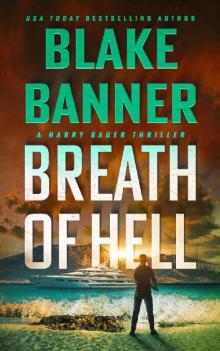 Breath of Hell (Harry Bauer Book 8)
Breath of Hell (Harry Bauer Book 8)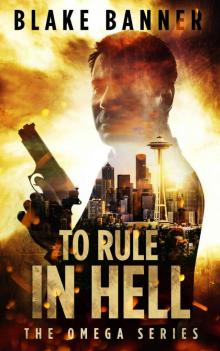 To Rule in Hell
To Rule in Hell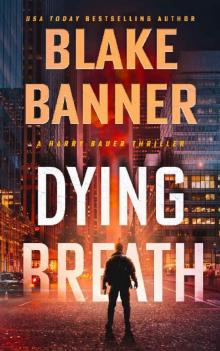 Dying Breath (Cobra Book 2)
Dying Breath (Cobra Book 2)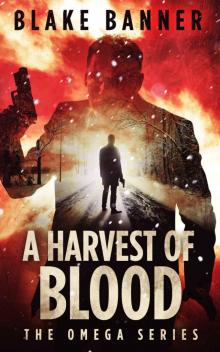 A Harvest of Blood - An Action Thriller Novel (Omega Series Book 5)
A Harvest of Blood - An Action Thriller Novel (Omega Series Book 5)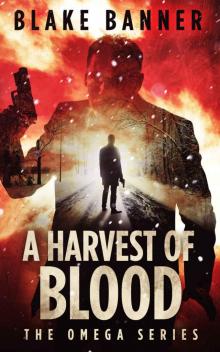 A Harvest of Blood - An Action Thriller Novel
A Harvest of Blood - An Action Thriller Novel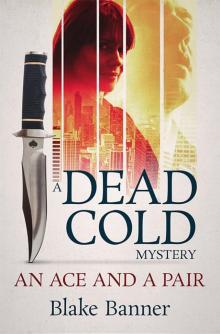 Ace and A Pair: A Dead Cold Mystery (Dead Cold Mysteries Book 1)
Ace and A Pair: A Dead Cold Mystery (Dead Cold Mysteries Book 1)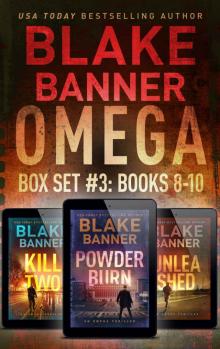 Omega Series Box Set 3: Books 8-10
Omega Series Box Set 3: Books 8-10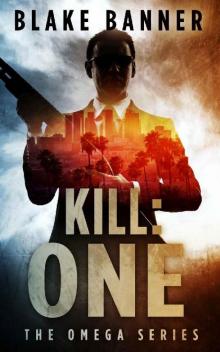 Kill One_An Action Thriller Novel
Kill One_An Action Thriller Novel The Storm
The Storm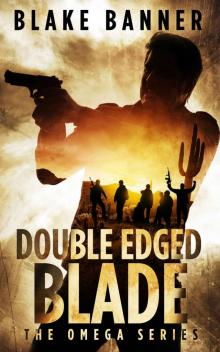 Double Edged Blade
Double Edged Blade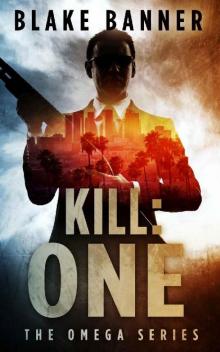 Kill: One - An Action Thriller Novel (Omega Series Book 7)
Kill: One - An Action Thriller Novel (Omega Series Book 7)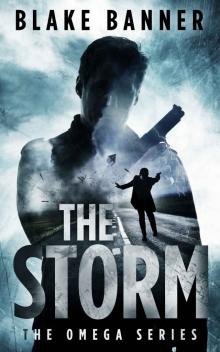 The Storm - An Action Thriller Novel (Omega Series Book 3)
The Storm - An Action Thriller Novel (Omega Series Book 3)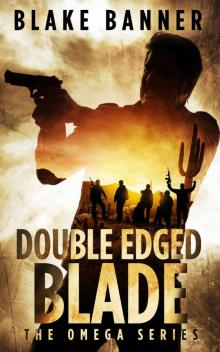 Double Edged Blade - An Action Thriller Novel (Omega Series Book 2)
Double Edged Blade - An Action Thriller Novel (Omega Series Book 2)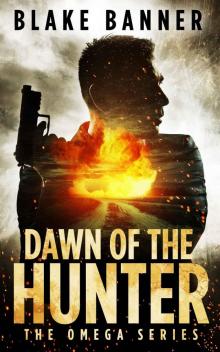 Dawn of the Hunter
Dawn of the Hunter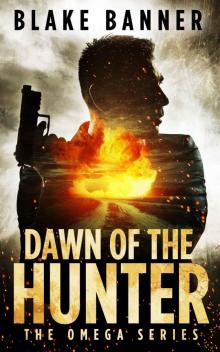 Dawn of the Hunter - An Action Thriller Novel (Omega Series Book 1)
Dawn of the Hunter - An Action Thriller Novel (Omega Series Book 1)